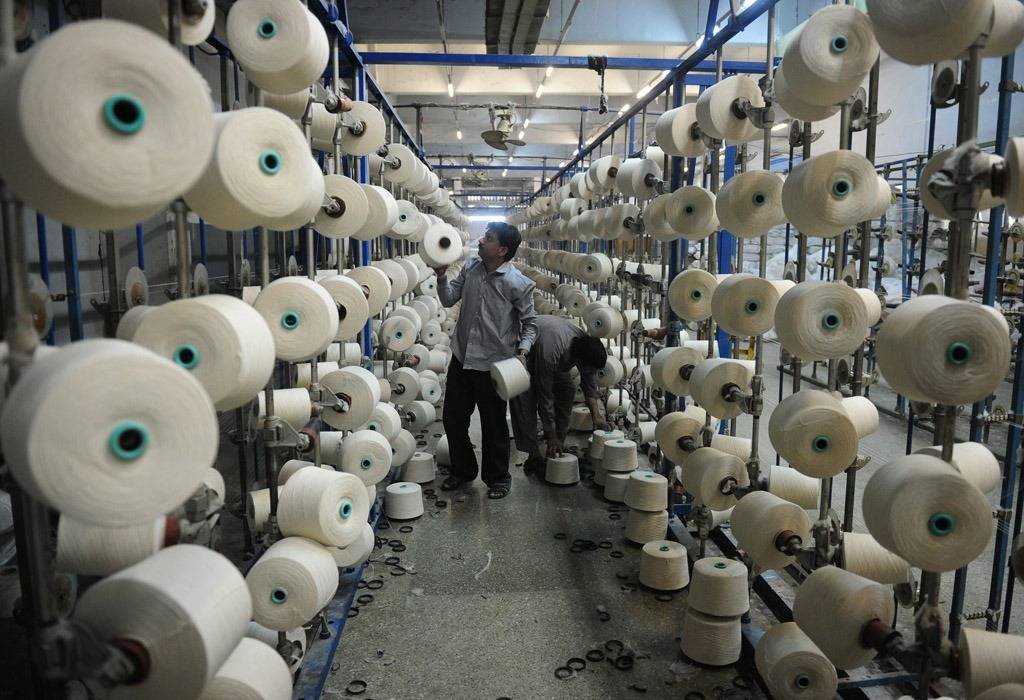WEB DESK: The All Pakistan Textile Mills Association (APTMA) has raised serious concerns about the proposed FY25 budget, labeling it as highly regressive and warning that it could lead to the collapse of the textile sector.
In addition, this would have dire consequences for employment, external sector stability, and overall economic and political security in the country.
After peaking at $19.3 billion in FY22, textile exports fell to approximately $16.5 billion in FY23. This decline continued throughout FY24, with monthly exports consistently falling over $600 million below capacity. The drastic drop underscores the urgent need for government intervention to support the sector.
Furthermore, the budget does not address the industry-wide energy crisis. Grid power tariffs have surged to 16.4 cents/kWh and are expected to rise by another 2 cents/kWh in July, more than twice the regional average.
Additionally, the cross-subsidy from industrial to other consumers is expected to increase from Rs. 240 billion to Rs. 380 billion, exacerbating financial strain on textile manufacturers and further reducing their competitiveness.
Read More:Punjab budget 24-25: announcement to restart Laptop scheme
The budget introduces extremely regressive tax policies. The tax rate on exports has increased from a 1% final tax regime to a 29% tax on profits, plus a 2% advance tax on export proceeds. This excessive taxation removes incentives for export-oriented activities and drains liquidity from the sector, particularly affecting low-margin, high-volume industries like textiles.
Eliminating zero-rating for local supplies to export-oriented units will lead to a rise in intermediate input imports, as exporters can import duty-free and sales-tax-free inputs under import-for-export schemes. The 18% sales tax plus turnover tax will further disadvantage local manufacturers already struggling with high energy costs.
Local manufacturers of intermediate products like yarn and cloth have lost competitiveness due to prohibitive energy prices, evidenced by a 600% increase in yarn imports between July 2023 and May 2024. These measures will further erode competitiveness, reducing domestic value addition in exports and worsening the trade balance.
Persistent delays in issuing sales tax and other refunds have created a severe liquidity crisis within the industry. Despite regulations mandating automatic refunds within 72 hours, delays extend to several months, with many claims deferred indefinitely.
Rising energy costs, high interest rates, and a dysfunctional sales tax refund mechanism have pushed many firms to the brink of bankruptcy. The FY25 budget further strains the industry’s liquidity without addressing the issue of stuck sales tax and other refunds.
Read More: Budget 24-25: announcement of health insurance for journalists
The budget contradicts principles of efficient capital and investment allocation, as Pakistan’s corporate tax rates remain the highest in the region, discouraging investment in productive sectors.
The failure to rationalize import duties on critical raw materials like Purified Terephthalic Acid (PTA) and Polyester Staple Fiber (PSF) benefits a single outdated manufacturing facility at the cost of the entire sector’s export growth and diversification, maintaining an anti-export bias and harming the textile sector’s competitiveness.
With 60% of the basic industry already shut down and the rest on the verge of closure, this budget will hasten the collapse of the textile sector, devastating the entire economy. The textile sector, responsible for over 50% of export earnings and employing over 40% of the industrial labor force, is critical to Pakistan’s economic stability.
Moreover, Widespread closures will significantly reduce export earnings, hindering the ability to meet import bills and external financing obligations, increasing the risk of balance of payments crises and sovereign default. Over 4 million workers in the textile sector could become unemployed, in addition to the millions who have already lost their jobs.
Reduced industrial activity will lower industrial power consumption, increasing unutilized capacity payments and raising power tariffs for all consumers. Investment prospects, both foreign and domestic, will deteriorate, destabilizing the external sector and economic growth for years to come.
APTMA urges the government to reconsider the FY25 budget and implement measures to address prohibitive energy costs, rationalize taxation, and create a conducive business environment to avert the imminent collapse of the textile sector. Failure to do so will have catastrophic implications for Pakistan’s entire economy and society.






